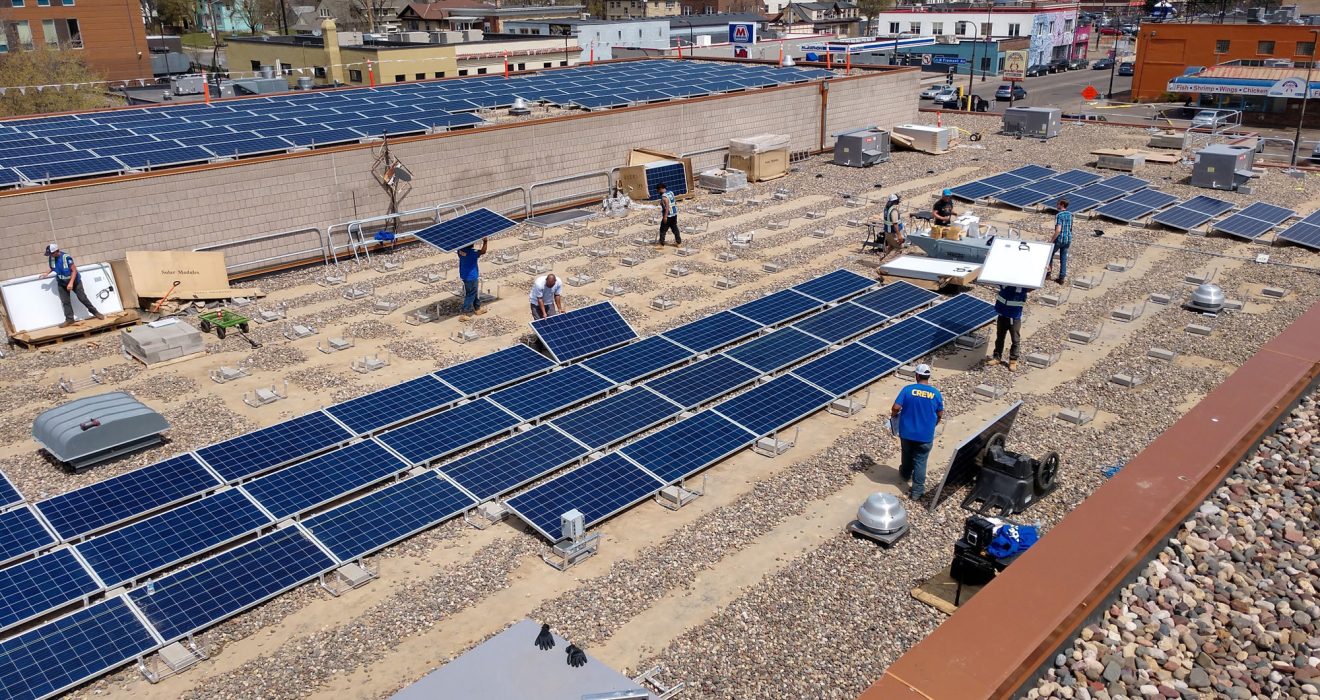This collaborative effort between WABE, Grist, and Capital Good Fund signals a paradigm shift in sustainable energy initiatives. The Georgia BRIGHT solar leasing program represents a pioneering approach to democratizing solar power, specifically tailored to empower households with annual incomes below $100,000. By targeting this demographic, the initiative seeks to dismantle the longstanding financial impediments that have hindered the integration of solar energy into the lives of moderate-income families.
The partnership’s strategic focus on Savannah, Georgia, serves as a testing ground for a model that could be replicated nationally. The program not only addresses economic challenges but also aligns with the broader mission of combating climate change and fostering environmental sustainability. By leveraging the tax advantages provided by the Inflation Reduction Act, Capital Good Fund has found a unique pathway to subsidize solar installations for eligible participants, offering them substantial energy bill savings.
In essence, this collaborative endeavor strives not only to bridge the socio-economic gap in solar adoption but also to set a precedent for how nonprofits can play a pivotal role in accelerating the transition to cleaner, renewable energy sources across the country. As the program progresses, its success in Savannah lays the groundwork for a transformative nationwide impact, promising a more equitable and sustainable future for communities often overlooked in the renewable energy landscape.
Evaluating Solar Potential
Rooftop solar installers, Nicole Lee and Seth Gunning, ventured into a Savannah neighborhood with great potential for solar panels. Assessing houses with newer constructions and optimal roof conditions, they explored the viability of integrating solar technology into these residences. The focus was not on selling solar panels outright but on evaluating homes for inclusion in the Georgia BRIGHT solar leasing program.
Overcoming Financial Barriers
Despite the numerous benefits of solar energy, including reduced carbon emissions and decreased reliance on the power grid, many moderate-income families find themselves unable to afford the high upfront costs associated with solar panel installation. The median income of solar adopters has decreased, but the financial gap remains significant. The Georgia BRIGHT program aims to bridge this divide by offering substantial savings on energy bills, making solar power an attainable option for these households.
Tax Law Transformations
Recent legislative changes, such as the Inflation Reduction Act, have revolutionized the landscape for nonprofits like Capital Good Fund. They can now claim federal tax credits directly as refunds and subsequently pass these savings on to customers enrolled in the Georgia BRIGHT program. This shift is particularly significant for moderate-income households, which often bear a disproportionate burden of energy costs. The act ensures that the benefits of solar leasing are more equitably distributed.
Capital Good Fund’s Pioneering Approach
While solar leasing is not a novel concept, nonprofits like Capital Good Fund have traditionally been overshadowed by for-profit companies in this arena. The altered tax law has allowed nonprofits to enter the field, presenting an opportunity for them to offer more affordable options. Andy Posner, the founder and CEO of Capital Good Fund, highlights the advantage of nonprofits in terms of lower costs and reduced return on investment requirements. The Georgia BRIGHT program, currently in its pilot phase, aims to bring solar to 200 roofs initially, with aspirations of expanding nationally.
Expanding Reach and Future Prospects
Capital Good Fund’s Georgia BRIGHT program, initially focused on residential installations, has already extended its reach to include churches and smaller nonprofits in Georgia. With ongoing discussions with approximately 10 other states interested in similar leasing programs, the initiative is positioned for nationwide expansion. The Environmental Protection Agency’s announcement of a $7 billion fund further underscores the potential for scaling up these programs, both in Georgia and beyond.
Success Stories and Environmental Contributions
The transformative influence of the Georgia BRIGHT program comes to life through the narrative of Savannah resident David Morgan. Having embraced solar technology, Morgan envisions a tangible impact on his monthly finances, anticipating savings of approximately $100. These newfound resources are not only a financial boon but also represent a strategic redirection towards his retirement planning. Morgan’s story stands as a testament to the program’s ability to alleviate economic burdens and empower individuals to make choices that secure their financial future.
In a notable move, Morgan opted for a solar panel system equipped with battery storage. This decision not only enhances his self-reliance during periods of insufficient sunlight but also signifies a commitment to contributing to the larger battle against climate change. By harnessing and storing solar energy, Morgan actively participates in reducing dependence on traditional power sources and curbing harmful carbon emissions. His conscientious choice demonstrates the dual benefits of renewable energy adoption—individual financial resilience and collective environmental stewardship.
David Morgan’s positive experience serves as a microcosm of the broader potential inherent in programs like Georgia BRIGHT. Beyond mere economic relief, these initiatives empower individuals, irrespective of income levels, to play a vital role in the renewable energy movement. As success stories like Morgan’s continue to unfold, the Georgia BRIGHT program emerges not only as a catalyst for personal financial well-being but also as a force driving positive environmental change at the grassroots level.

